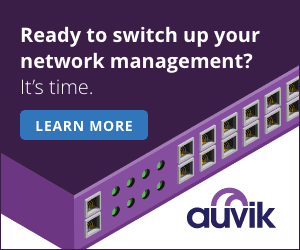6 VPN Best Practices Enterprises Should Consider in 2023


The editors at Solutions Review lay out some VPN best practices enterprises should consider when deploying a new solution.
With the increasing adoption of remote work and cloud-based services, traditional security measures such as firewalls and antivirus software may not be sufficient to protect against sophisticated cyber-attacks. VPNs provide an added layer of security by creating a secure tunnel between the user’s device and the corporate network. This tunnel is encrypted, ensuring that any data transmitted over the VPN cannot be intercepted or eavesdropped upon. This is particularly important for enterprises that handle sensitive data, such as financial information, trade secrets, and personal data.
Another key benefit of using a VPN is allowing employees to access corporate resources anywhere in the world, without compromising the network’s security. With a VPN, employees can securely access corporate applications, email, and files from their laptops, smartphones, or tablets, even when they are not physically in the office. VPNs also provide an effective way to bypass geo-restrictions and censorship, making them valuable tools for enterprises that operate in countries with restrictive internet policies. By using a VPN, employees can access the internet as if they were located in a different country, enabling them to access services and content that may be otherwise unavailable.
By following these best practices, enterprises can be better prepared when implementing VPN into their cybersecurity strategy.
6 VPN Best Practices to Consider in 2023
Here are some VPN best practices that enterprises should follow:
- Use a trusted VPN provider: Enterprises should choose a reputable VPN provider with a proven security and reliability track record. Do your research, read reviews, and ensure the provider has a solid reputation in the industry.
- Implement strong authentication and access controls: Enterprises should use robust authentication mechanisms, such as two-factor authentication, to ensure that only authorized users can access the VPN. Additionally, access controls should be implemented to restrict access to sensitive resources and data.
- Encrypt all VPN traffic: All VPN traffic should be encrypted to protect it from interception and eavesdropping. Enterprises should use strong encryption protocols, such as AES, and implement perfect forward secrecy to ensure that previous VPN sessions cannot be decrypted if the encryption keys are compromised.
- Monitor and log VPN traffic: Enterprises should monitor and log VPN traffic to detect and investigate any suspicious or malicious activity. Logs should be stored securely and reviewed regularly to identify any security incidents.
- Regularly update VPN software: VPN software should be kept up to date with the latest security patches and updates. Enterprises should have a process for periodically testing and updating VPN software to ensure that it remains secure and reliable.
- Educate employees on VPN best practices: Enterprises should educate their employees on the importance of VPN security and best practices for using VPNs. This can include training on how to set up and use the VPN, as well as how to identify and avoid potential security threats.
Overall, VPNs are essential for enterprises that want to secure their network traffic and protect sensitive data. By implementing strong authentication, access controls, encryption, regular software updates, and employee training, enterprises can significantly reduce their risk of a cyber-attack and ensure the security of their network and data.
This article on VPN best practices to consider was AI-generated by ChatGPT and edited by Solutions Review editors.






















